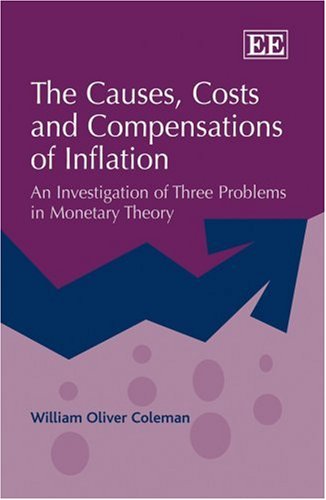

Most ebook files are in PDF format, so you can easily read them using various software such as Foxit Reader or directly on the Google Chrome browser.
Some ebook files are released by publishers in other formats such as .awz, .mobi, .epub, .fb2, etc. You may need to install specific software to read these formats on mobile/PC, such as Calibre.
Please read the tutorial at this link: https://ebookbell.com/faq
We offer FREE conversion to the popular formats you request; however, this may take some time. Therefore, right after payment, please email us, and we will try to provide the service as quickly as possible.
For some exceptional file formats or broken links (if any), please refrain from opening any disputes. Instead, email us first, and we will try to assist within a maximum of 6 hours.
EbookBell Team

4.0
46 reviewsThis book explores the causes, costs and benefits of inflation. It argues that while the cause of inflation is essentially monetary, the costs and benefits of inflation lie in inflation's distortion of the economy's responses to real shocks.
The book begins by securing the Quantity Theory of Money from certain critiques. The theory is defended from the `fiscal theory of the price level' by a refinement of the theory of money demand, and from post Keynesianism by the construction of a theory of the supply of inside money. To cope with the endogeneity of outside money, a simple and tractable neo-Wicksellian theory of inflation is advanced, which is shown to exhibit a striking homology with the Quantity Theory. The author then traces the costliness of inflation, not to any disturbance of the money market, but to the damage inflation does to the bond market's function of sharing out disturbances to consumption caused by technological shocks. The same damage, however, imparts an egalitarian dynamic to accumulation that produces a convergence in the wealth of economic interests, which will not occur without risky inflation.
The Causes, Costs and Compensations of Inflation will be of great interest to central bankers, researchers in monetary economics, and both post-graduate and undergraduate students in macroeconomics, money and banking.